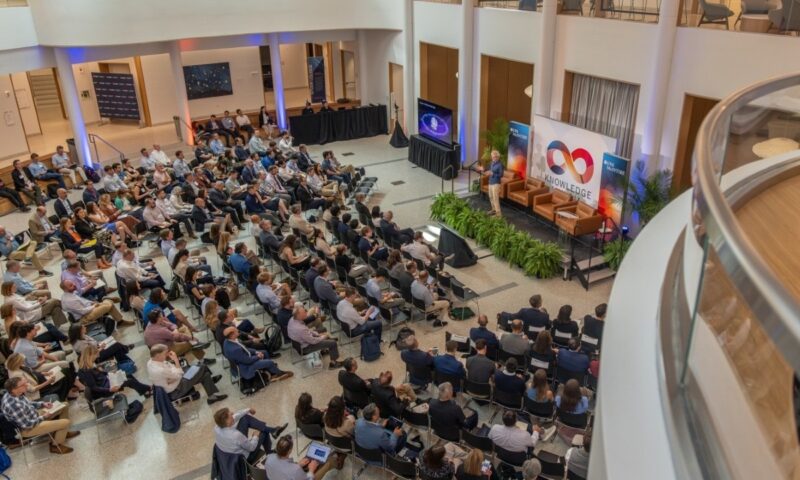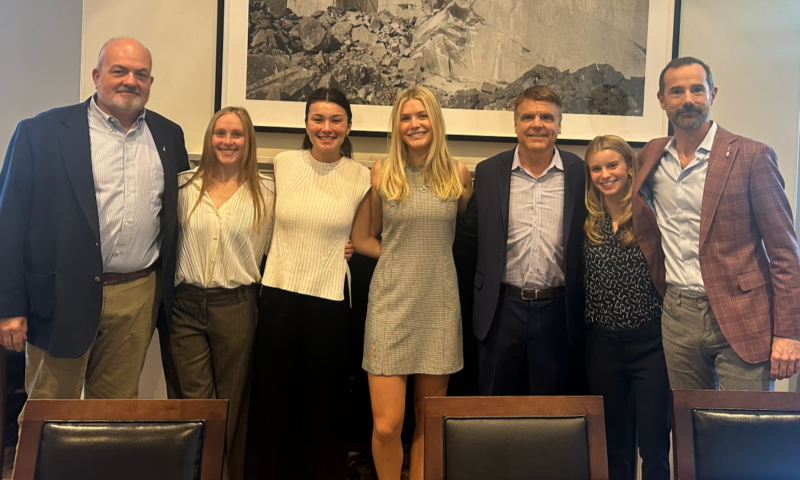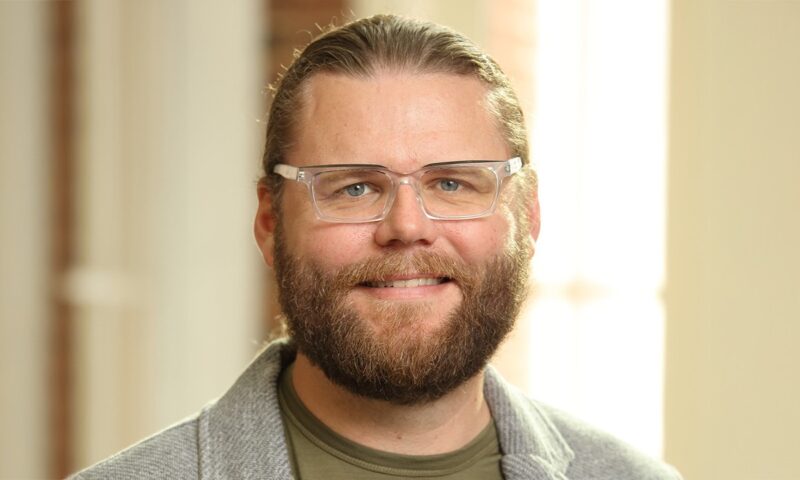Preparing students to successfully leverage information technology to produce business value in any industry, as well as to find solutions to society’s biggest challenges, McIntire’s Information Technology Area is one of the most important contributors to the School’s incomparable, cutting-edge business education. The concentration is also one of the busiest, as it’s tasked with staying current and anticipating trends in a discipline that’s perpetually updating. IT Area Coordinator and Professor Saonee Sarker is well aware that as exponential changes impact numerous industries on what may feel like an almost daily basis, those sometimes revolutionary shifts affect her area’s classes, as well as the findings of her research and the research of her colleagues.
“Technology is changing every day,” Sarker says of the ever-evolving nature of her field. “In my previous teaching position at Washington State, I taught a graduate course called ‘Emerging Technologies,’ and I used to joke that every year my syllabus changed completely, because what was emerging last year has already emerged and is probably dying now. You have to reinvent yourself. Scholars in our field’s top journals—dating back to my Ph.D. days in the early 2000s—would always say the same thing: ‘We not only have to be rigorous, but we have to be relevant.’”
Deep Knowledge Disseminated
Far from remaining merely “relevant,” Sarker has cultivated multiple areas of deep knowledge over the course of her career, with research expertise covering contemporary issues and areas as varied as globally distributed software development teams, legal issues around cloud computing, smart city development, the growing application of smart, connected devices, and innovations in green IT.
In her work on green and smart connected tech, she has studied the enormous benefits of smart electricity meters for home use. Like many new technologies, they afford the user unprecedented autonomy, but at a cost: The invasive nature of the devices give power companies intimate details about their customers’ lives. “That’s a very Big Brother approach and there’s a lot of pushback from the consumers,” she notes.
Sarker’s research interests also extend into health care, where she has worked with hospitals on the positive and negative aspects of techno-related stress, related to the enormous burden, diminished patient care, and work-life balance sacrifices made in the name of inputting patient data into incompatible and outdated systems.
Her research regularly informs her teaching—from project and product management for the M.S. in Commerce Marketing & Management track and sessions on global software development and offshoring for the M.S. in MIT Program, to her facilitator role across India, the Middle East, and Asia for the M.S. in Commerce’s Global Immersion Experience (GIE). Sarker’s studies even come into play within the first few weeks of the undergraduate Integrated Core Experience (ICE) class “Strategy and Systems.”
“In ICE we talk about everything related to IT right now—green efforts and sustainability, as well as global issues, like offshoring, outsourcing, and global software development,” Sarker says, adding that discussing current research in class is a powerful way for her and her colleagues to disseminate knowledge and keep their research current. “It’s a channel for us to get the word out about what’s happening with our research. We are translating it into meaningful knowledge that we’re giving back to the next generation, who are now using it in organizations.”
A Team of Game Changers
Sarker is one of many Information Technology Area faculty members spearheading groundbreaking research initiatives.
McIntire Professor Jennifer Claggett is studying health care software systems and electronic records to make recommendations for creating better technology solutions. The research considers big questions concerning how software can be designed to partially or fully automate coordination between health care individuals.
In a study on telemedicine in a group that includes fellow IT professor Brent Kitchens, their research suggests that videoconference-based medical consultations are equally as effective as those given in person.
Claggett is also leading a third study along with McIntire IT colleagues Peter Gray and Steven Johnson on the adoption of wearable tech like Fitbit as a motivating or discouraging factor in reaching personal fitness goals.
In a different research project utilizing wearable tech, McIntire Professor Ahmed Abbasi has been working with collaborators to identify patterns and risk factors in stroke patients. His work studies at-risk individuals in America’s “Stroke Belt,” the area between Texas and West Virginia where stroke rates are about 40 percent higher than the national average. Through data analytics, the study aims to develop a mobile-based, holistic, patient-empowered platform capable of tracking warning signs to alert patients and physicians, and offering patients strategically crafted intervention options.
Sarker also notes the cybersecurity research being conducted by McIntire Professor Ryan Wright. Co-author of an ongoing, three-year study that began in September 2015, Wright insists that large organizations can better fight phishing attacks and other socially engineered threats by using a “human firewall” that integrates their own employees. As traditional efforts have focused on mitigating attacks in spite of their employees’ actions, Wright’s team shows how the human firewall idea may prevent cyberattacks by systematically relying on an organization’s own people as an integral part of the defense process.
Moving Beyond Academia
The IT Area’s research efforts have created a culture of savvy change agents that seeks to use their findings beyond academia. Sarker looks at the big picture and hopes to involve industry and government to act on their findings, while arming students with the vision and energy to help contribute in the near future to the organizations that stand to benefit most from their work.
“Nowadays we talk about grand challenges, because the problems of the world are big right now,” she says. “They affect people at the societal level. If you think about green IT, privacy, health care, cybersecurity—these are societal-level challenges. You cannot really answer those questions without a deep relationship among industry, academics, and society. Individual citizens need to be included as much as possible, because this impacts all of us.”
The Rolls-Royce Commonwealth Commerce Professor, who also serves as senior editor for the esteemed information systems journal MIS Quarterly and associate editor for Decision Sciences Journal and Communications of the AIS, understands the importance of having IT professors convey their work to the outside world. Sarker and her IT Area colleagues have proven themselves up to the task.



